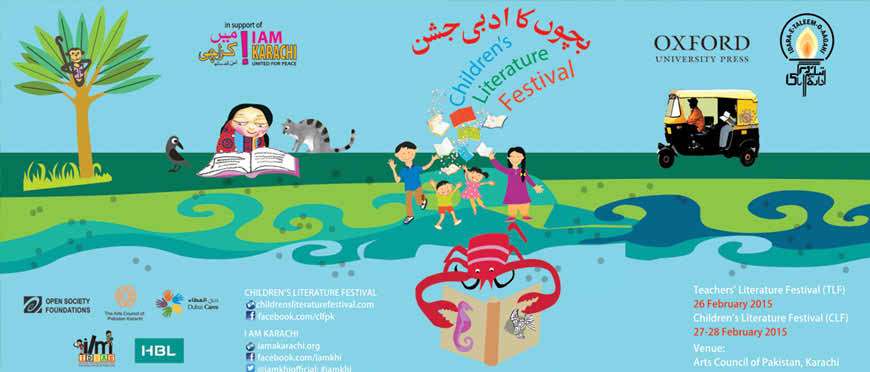
On February 26 and 27, 2015, Bolo Bhi representatives Farieha Aziz and Ghausia Rashid Salam conducted digital security trainings at the Teachers’ Literature Festival (TLF) and the Children’s Literature Festival (CLF) in Karachi. Bolo Bhi conducted two separate digital security trainings for teachers and students.
The CLF was founded by Baela Raza Jamil and co-founded by Ameena Saiyid in 2011, while the TLF emerged in 2014. Both Festivals aim to develop critical thinking skills and learning capabilities in schoolchildren, beyond the culture of rote-learning. The TLF is a training for teachers in learning how to engage with students to develop critical thinking skills and to encourage students to read. The CLF is a day of storytelling, theatre, and activities centred on encouraging creative writing and reading.
Teachers’ Literature Festival
At the TLF, the training focused on securing online communications such as email and social networks. In addition, there was also focus on securing computers, laptops, and cellular phones. At the onset, teachers understood basic concepts about the internet and how information is stored online. Nonetheless, there was a lengthy discussion on how data is stored.
Bolo Bhi helped clarify key concepts about online security. Teachers were specially interested in learning how to secure their profiles and activity on Facebook. Bolo Bhi helped familiarise them with their security and privacy settings, and how to connect their phones with Facebook and their email accounts in cases of any account being compromised.
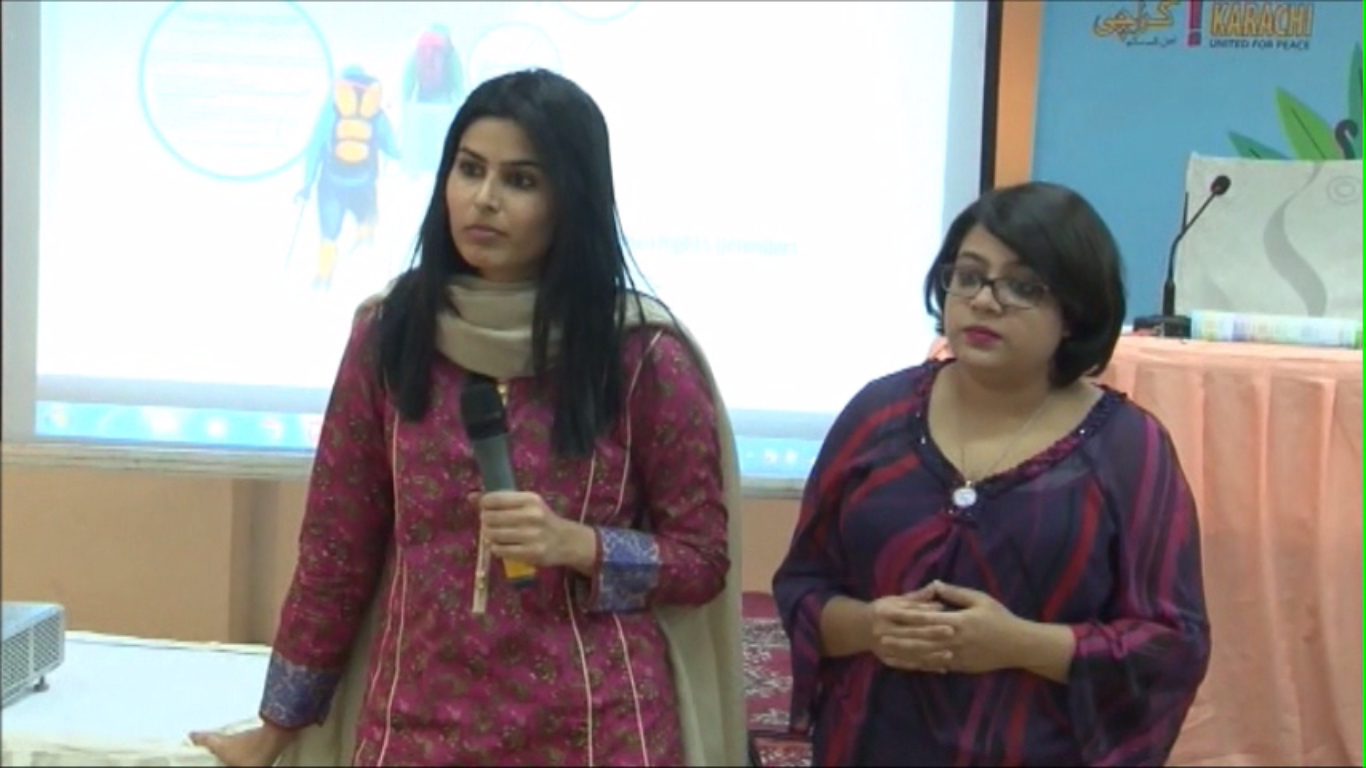
Children’s Literature Festival
At the CLF, the initial training began with a group of eight to 10-year-olds from a girls school. They were later joined by a group of older students. The primary school girls were an enthusiastic, excited group, eager to share their experiences and stories.

It was disconcerting to learn some of these girls have their own Facebook accounts or use their parents’ Facebook accounts with minimal supervision. Bolo Bhi emphasized on transparent interaction with parents, older siblings, or aunts and uncles in order to stay safe online. The girls were well aware of online threats, despite their young age, and shared stories of children they knew who had been kidnapped by people they interacted with online.
With the level of independence afforded so early on in their school years via the internet, it is absolutely imperative to equip children with the knowledge and tools to keep their digital and online presence and activity secure.
One primary school student said, “My mother says there is no need to have Facebook because these days the situation in the city is such that there is no knowing what can happen.” It is not enough to merely mourn over the loss of innocence, when children need to be mindful of any and all security threats. It is important to equip them with essential tools such as digital security, and not just in case to prevent child kidnappings.
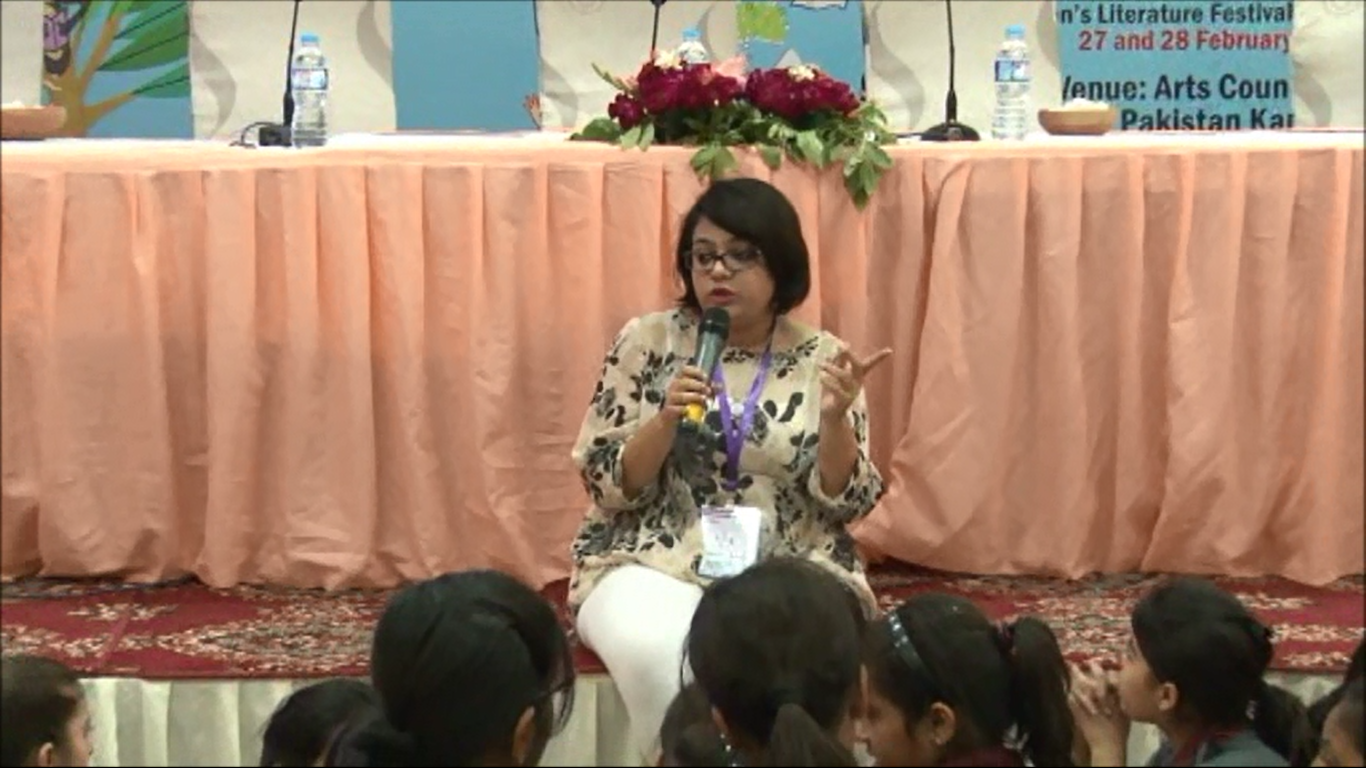
With diminished use of bulky PCs, and the increased use of mobile phones, tablets, and laptops, children are less easy to supervise. This was a point Bolo Bhi emphasized, even with the teachers supervising the children participating in the session–children are no longer limited to using the internet while connected to one fixed point at home and can instead carry devices with them, making it hard to monitor their safety. Therefore, it is necessary to ensure their internet usage is safe and secure.
Aziz interacted with older students who joined the session later on, while Salam quickly integrated with the eight to 10-year-old group. As Aziz discussed digital security with the older students, Salam interacted with the younger children individually, who were enthusiastic to share their personal stories.
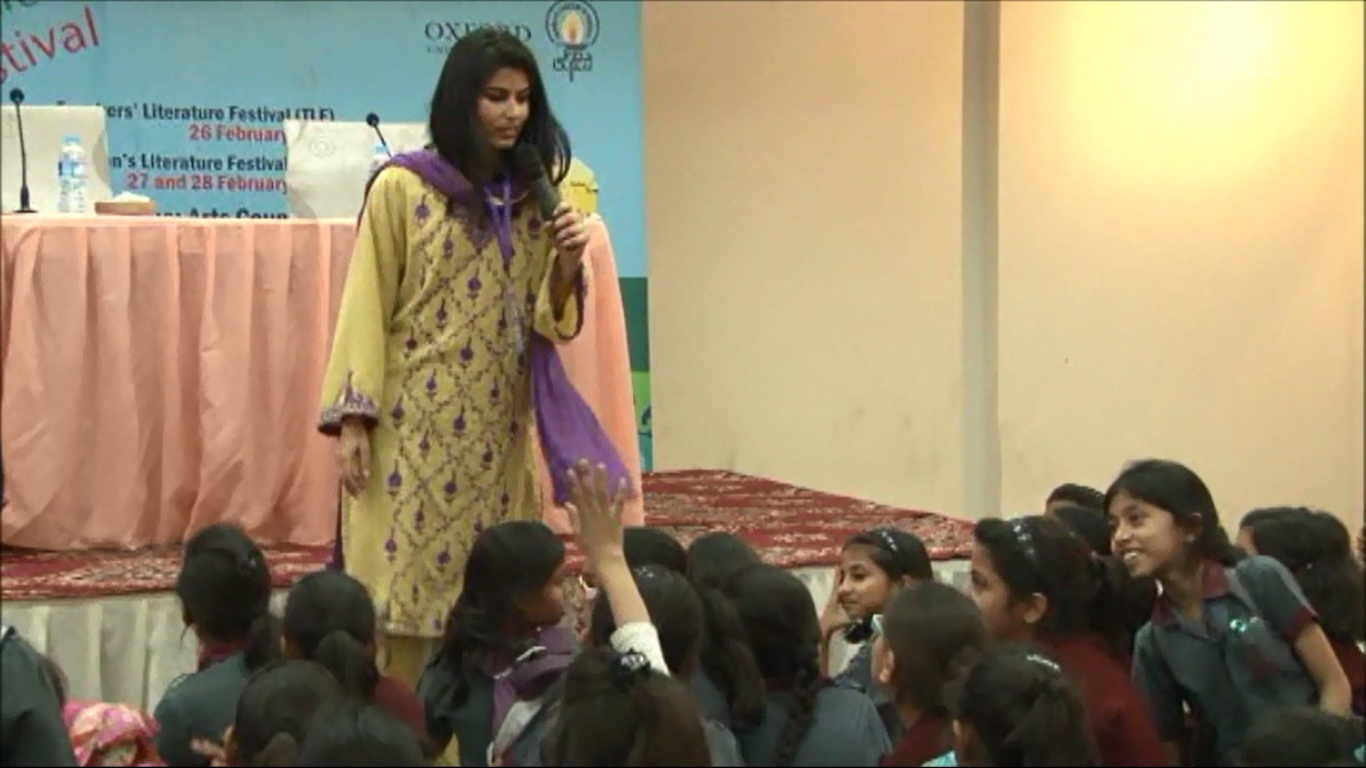
One such child shared she used a fake Facebook ID to chat with a friend she had made online, but her parents did not know about it. This was a point Salam and Aziz emphasized on greatly–encouraging children to talk to their parents, older family members and teachers about their activities online to ensure safety. The Bolo Bhi members reminded all participants to be forthright about all online activities.
It is encouraging to note the children participating in CLF were very enthusiastic and receptive. With the level of independence afforded so early on in their school years via the internet, it is absolutely imperative to equip them with the knowledge and tools to keep their digital and online presence and activity secure.
It is disappointing, however, to see many teachers did not participate in the digital security training session. Even though training teachers is an essential in keeping children safe online, a large component of training teachers was designed around keeping teachers safe as well. It is doubly important teachers are responsible for their own safety as well as the safety of their wards.
Bolo Bhi plans to create more learning opportunities based around schoolchildren and teachers in an effort to impart best practices in digital safety.
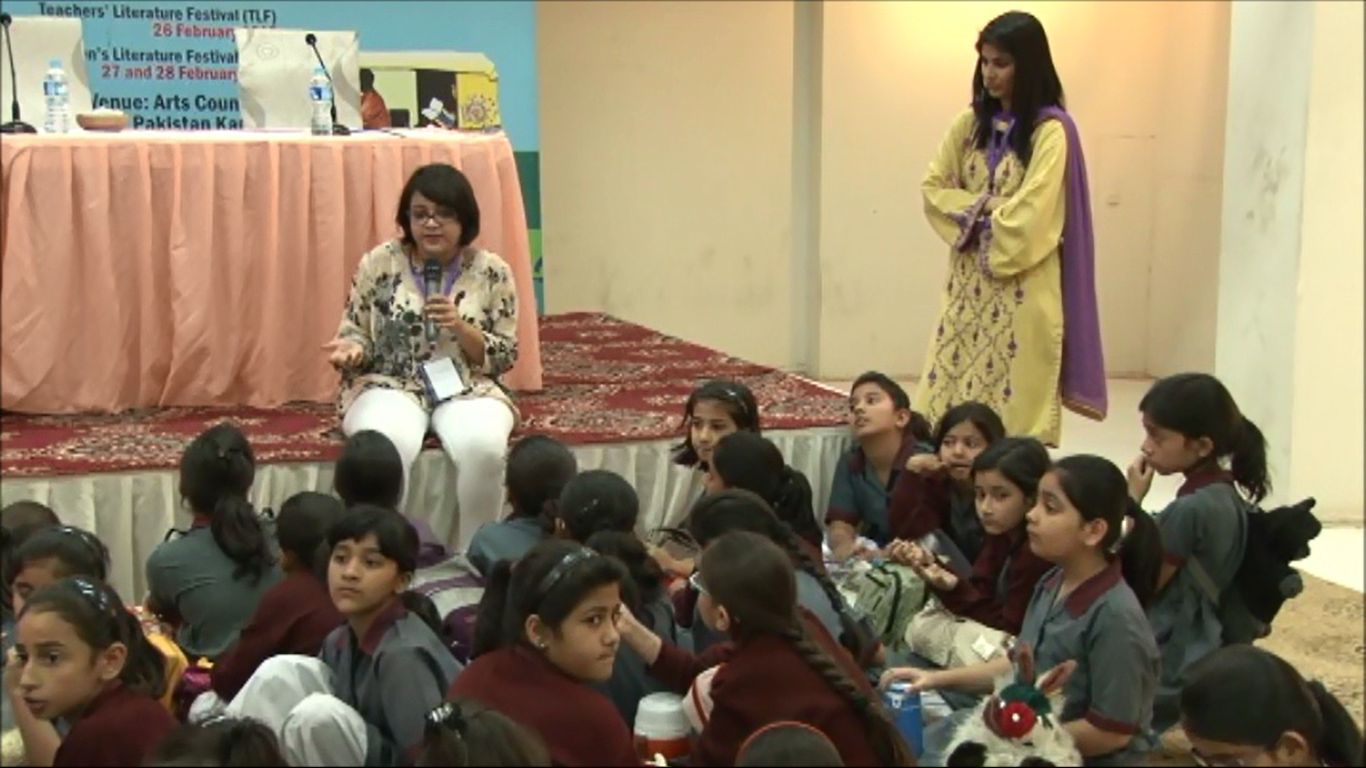
View Bolo Bhi’s guide to digital security here.
See a partial video of Bolo Bhi’s digital security training at Teacher’s Literature Festival here.


